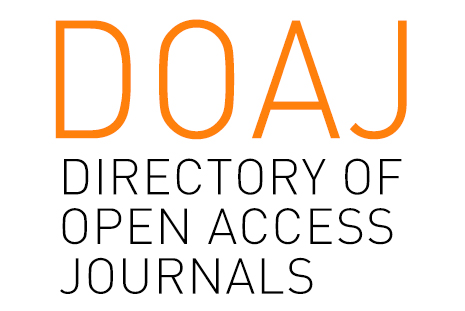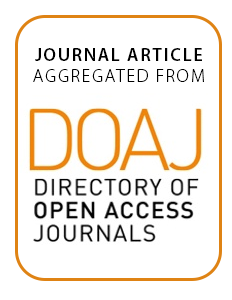Location
The Directory of Open Access Journals was launched in 2003 at Lund University, Sweden, with 300 open access journals and today contains ca. 10000 open access journals covering all areas of science, technology, medicine, social science and humanities.
DOAJ is a membership organisation and membership is available in 3 main categories: Publisher, Ordinary Member and Sponsor. A DOAJ Membership is a clear statement of intent and proves a commitment to quality, peer-reviewed open access. DOAJ is co-author to the Principles of Transparency and Best Practice in Scholarly Publishing (Principles) and DOAJ members are expected to follow these principles as a condition of membership. DOAJ reserves the right to reject applications for membership, or revoke membership if a member or sponsor is found to contravene the Principles. Read more about membership here.
DOAJ is a community-curated list of open access journals and aims to be the starting point for all information searches for quality, peer reviewed open access material. To assist libraries and indexers keep their lists up-to-date, we make public a list of journals that have been accepted into or removed from DOAJ but we will not discuss specific details of an application with anyone apart from the applicant. Neither will we discuss individual publishers or applications with members of the public unless we believe that, by doing so, we will be making a positive contribution to the open access community.
DOAJ publishes Information for Publishers on this site to help Publishers adhere to the Principles and to assist them in completing an application. DOAJ also publishes a list of FAQs relevant to all members of the publishing community, particularly libraries and authors. All information on this site is available to both members and non-members.
Aims & Scope
The aim of the DOAJ is to increase the visibility and ease of use of open access scientific and scholarly journals, thereby promoting their increased usage and impact. The DOAJ aims to be comprehensive and cover all open access scientific and scholarly journals that use a quality control system to guarantee the content. In short, the DOAJ aims to be the one-stop shop for users of open access journals.
Members:
Resources
Displaying 6 - 10 of 783TO THE QUESTION OF FORMATION OF EARTHQUAKES OF CORPORATE STRUCTURES OF AGRICULTURAL PRODUCTION
The article analyzes the development of corporate structures in agricultural production, proves the influence of corporate formations on the efficiency of agrarian production. On the basis of the analysis of official information of agro holdings, an assessment was made of the efficiency of their activities and a conclusion was made about the optimal size of their structural subdivisions. The advantages and disadvantages of integrated structures are highlighted, peculiarities of formation of their land relations are determined.
MODERN PRINCIPLES OF PROTECTED AREAS MANAGEMENT: EUROPEAN EXPERIENCE
The article outlines an understanding of the modern principles, types of management of protected areas and policies aimed at ensuring sustainable land use development taking into account European experience.
The change in awareness of the role of nature in human life and place of man in the biological chain of the planet also changed the approaches to the creation of protected areas, measures of protection and management system and environmental and economic instruments of environmental land use.
PROBLEMS OF CLASSIFICATION AND FORMATION LAND OF AVIATION TRANSPORT
Independent Ukraine had 50 permanently operating airports in 1991. Nowdays there are currently only 20 operating airports in Ukraine, 2/3 of which require reconstruction and substantial technical re-equipment. Without proper investment, Ukraine is able to lose its status as a transit state, as it is unable to recover its transport infrastructure independently. In connection with this, the international experience of the development of airports, particularly in the Baltic States, Georgia, Norway, Poland, deserves special attention.
FOOD CRISIS AS FACTOR OF FUTURE VALUE OF THE AGRICULTURAL LAND
At the present stage of human development, food is one of the most acute problems. Over the past 30-40 years, the growth rate of population in many countries of the world is ahead of the growth rate of agricultural production, which leads to acute shortage of food. This is especially true of developing countries, which accounts for the overwhelming majority of the population of the planet that is under-eating and starving. According to FAO (Food and Agriculture Organization), in the world now about half a billion people are constantly hungry and twice asleep.
Theoretical concepts "land management process", "land management procedure" and their relationships
The state significance of land management activities is manifested in those legal consequences that arise after the issuance of land management documentation and are conditioned by the need to secure unsupported land rights and the use and protection of land in a state-guaranteed manner.


